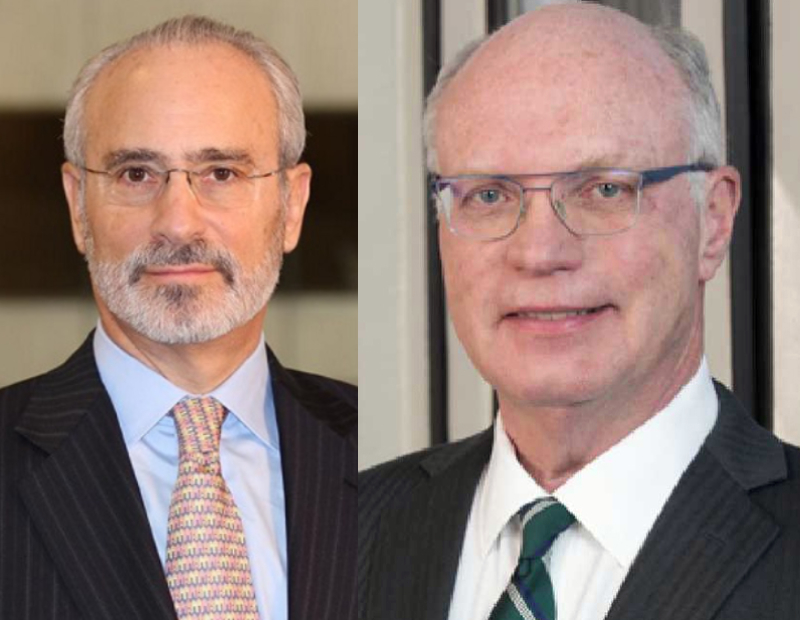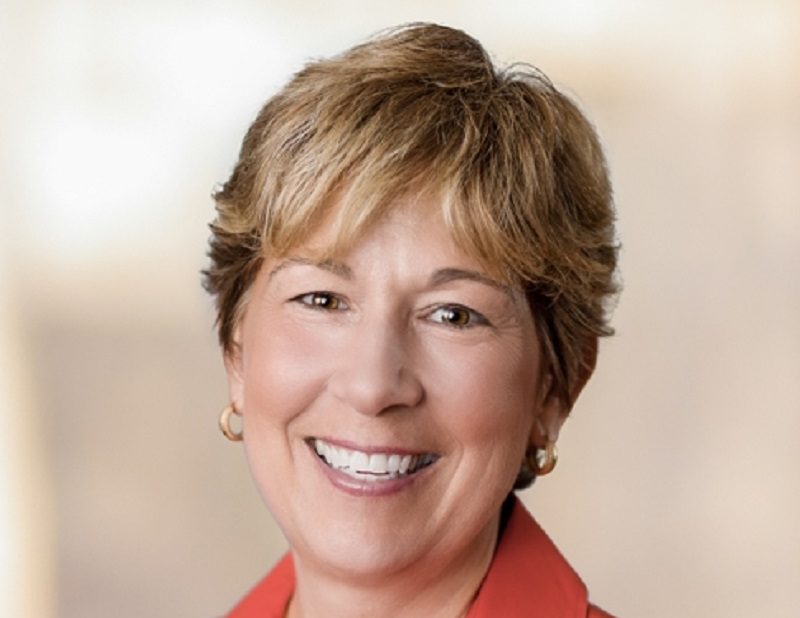CRE’s Cautious Road to Recovery
At NAREIT's virtual REITWeek conference, real estate leaders discussed the impact of the pandemic on operations and offered insights on sustained reopening strategies.

Steve Wechsler, President & CEO, NAREIT; William A. Stein, CEO, Digital Realty Trust
At NAREIT’s REITWeek Virtual Investor Conference, a tale of two asset types emerged: those centered in essential sectors of the economy and those servicing non-essential sectors.
The good news is that whether their industry was particularly hard hit or left relatively unscathed, all the panelists during a two-part discussion on “Navigating the Pandemic and the Road to Recovery”—moderated by NAREIT’s President & CEO Steve Wechsler and Digital Realty Trust’s CEO William Stein—noted multiple signs of recovery: better-than-expected foot traffic at reopened retail centers, an uptick in leisure travel, improving apartment and self storage leasing, reopened local planning and permitting offices, and hospitals once again performing elective procedures.
The pandemic’s impact on the hospitality, retail and health-care sectors has been well-documented. On the other hand, the performance of the multifamily, self storage and infrastructure sectors has proven to be remarkably resilient.
READ ALSO: CRE Market Confidence Slightly Higher
Jon Bortz, chairman, president & CEO of Pebblebrook Hotel Trust, summed up the adversity facing the hospitality sector: “Our industry has been devastated. Travel has been dramatically reduced by government regulation, business travel policies, and of course, human behavior.”
Bortz noted that the hospitality industry has seen about 20 percent of its hotels closed and roughly 75 percent of its workforce furloughed, with closures and furloughs largely concentrated in resort and urban locations. “This will be a really slow recovery (for hospitality),” he said. “The level of distress, and opportunity ultimately, will be multiples greater than it was in ’09.”

Lisa Palmer, President & CEO, Regency Centers. Image courtesy of Regency Centers
Retail assets have been facing a unique challenge: Most large, open-air retail centers generally have at least one tenant operating an essential business, necessitating overall property operations to continue. “With 100 percent of operating costs … but only 60 to 70 percent of your revenues, it’s not really a great business model,” observed Lisa Palmer, president & CEO of Regency Centers.
She highlighted the importance of Paycheck Protection Program loans, as April rent collections have improved to 70 percent from an initial 60 percent. “A significant portion of that retail rent collection is a result of our businesses receiving (PPP) loans,” Palmer said. She estimates that 25 percent of Regency tenants were eligible for the loans, a provision of the CARES Act intended to help small businesses weather pandemic shutdowns.
Better Than Expected
In contrast, multifamily, infrastructure and storage REIT executives reported that performance has been better than expected.
“The apartment industry has really held up pretty well,” said Eric Bolton, CEO of MAA. “At this point, we’ve collected over 99 percent of what we billed for April; we’ve collected over 97 percent of what we billed for May.”
Along those lines, Jay Brown, president & CEO of Crown Castle International, an owner of wireless network infrastructure, remarked: “Our business is an essential business, and so from an operating standpoint we’ve been continuing to operate through this cycle.”
All 2,500 of Public Storage’s locations were able to remain operational, reported Joseph Russell, the REIT’s president & CEO. “Month by month, we’ve continued to see elevated levels of activity across our portfolio,” he added. Public Storage moved in some 82,000 new customers in April, followed by another 115,000 in May.
The outlier to the essential vs. non-essential narrative is the office segment. Boston Properties CEO Owen Thomas said that while all the company’s buildings remained open during the pandemic, the combination of corporate policies and shelter-in-place orders limited occupancy to 5 percent. Despite that anomaly, Thomas noted that 97 percent of rent billed for May was collected; coworking and retail spaces exhibited the only softness.
Cautious Steps
While signs of recovery are starting to impact every segment, Ventas Chairman & CEO Debra Cafaro struck a cautionary note about the health-care sector.

Debra Cafaro, Chairman & CEO, Ventas. Image courtesy of Ventas
“We are all prisoners of the virus. There are still at least a dozen states where the virus continues to increase in incidence right now.” The executive cited what she called a failure of national public health policy to address the pandemic.
“I do think we are going to continue to see real variations in hotspots across the country,” Cafaro added, noting that waves of infection have moved beyond densely populated urban centers to rural areas as well as to secondary and tertiary markets.
A sustained reopening, she contends, depends on the development of a vaccine, along with the nationwide implementation of comprehensive, highly accessible testing: “We all have to be humbled by the virus.”







You must be logged in to post a comment.